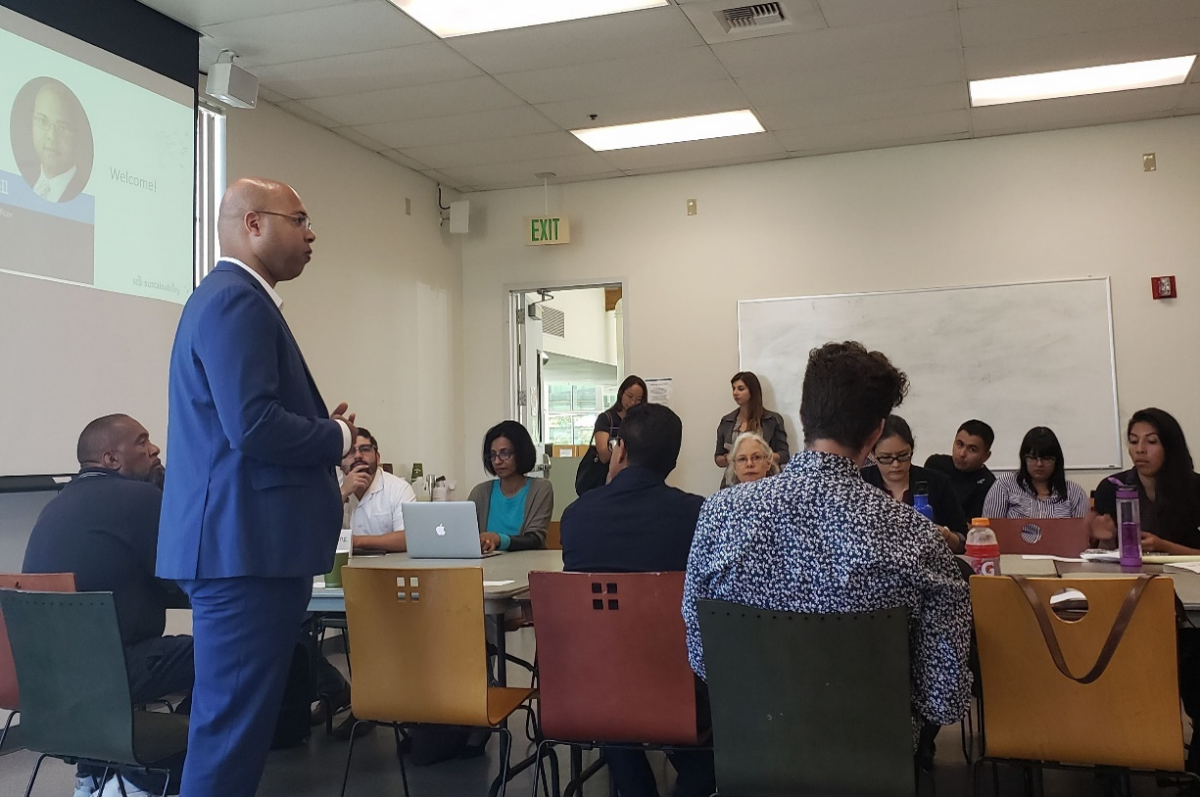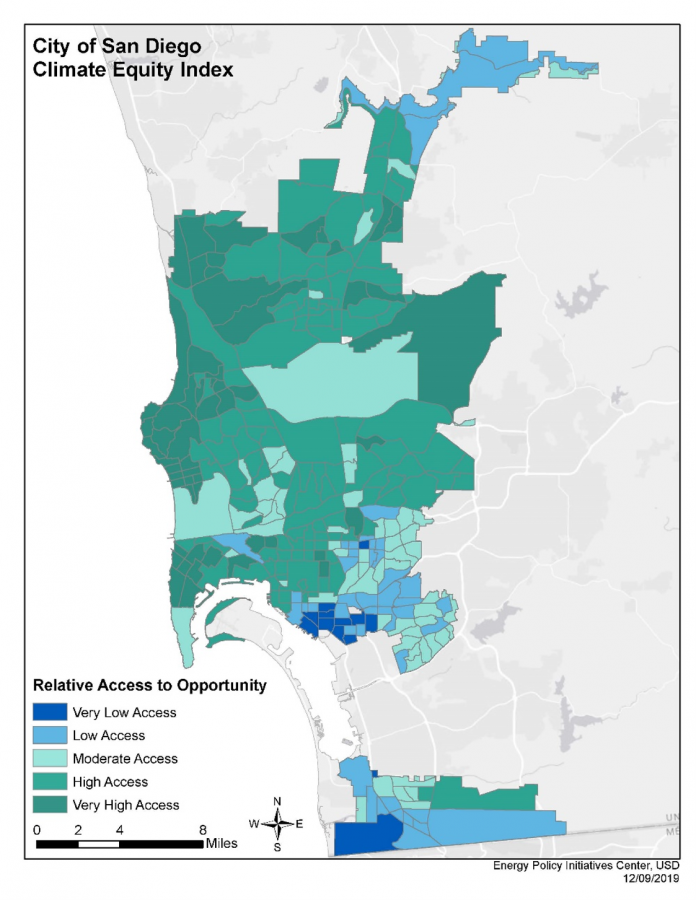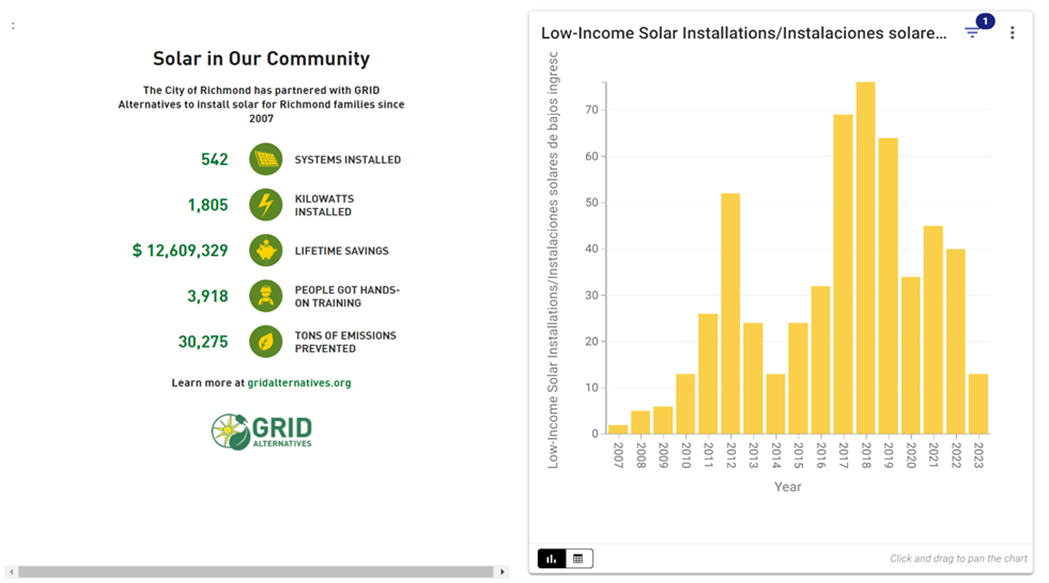How cities are using open data to advance climate equity
Nikita Sinha is a program manager for the Institute for Local Government and can be reached at nsinha@ca-ilg.org.
Because of past policies like redlining and a lack of investment in infrastructure, many low-income communities of color experience the most severe outcomes of climate change and are often the least prepared. These impacts can range from catastrophic, one-time events like a dangerous wildfire, to long-term environmental injustices, like poor air quality.
Many cities are creating climate action plans — roadmaps for reducing greenhouse gas (GHG) emissions — that center and protect the most vulnerable communities. These plans allow cities to redress historical disparities and create programs that benefit the communities that need help the most. Key to these are data tools like CalEnviroScreen or the census, which can help cities better understand which communities may be most vulnerable to climate change.
Some cities have found it beneficial to incorporate multiple layers of data into their own systems. Local environmental, health, and socioeconomic data can do more than help identify the most vulnerable communities: It can help officials develop strategies that increase community resilience and address historic injustices. This will ensure that the benefits of climate action are distributed fairly and uplift the entire community.
San Diego works with the community to find key indicators
In 2019, the city of San Diego released the Climate Equity Index, which uses 35 environmental, health, mobility, socioeconomic status, and housing indicators to map quality of life and potential climate change impacts. The data comes from regional, state, and federal public data sources. The index gives each community in San Diego a way to compare its access to opportunity against other local communities, rather than measuring it against regional, state, or federal measurements.
While San Diego used datasets with open sources — including the census, the Urban Heat Island Index, and CalEnviroScreen — as inputs, residents provided to create a more localized tool. The city worked with 23 community-based organizations to co-develop the 35 indicators, which include flood risk, access to healthy food, median housing cost, and unemployment rates, among others. The city relied on the organizations as subject matter experts during this process.
“It was important for us to not just pull data from different sources, but to be intentional about why we wanted to use it,” said Shelby Buso, the city’s chief sustainability officer. “The lived experience shared by our Equity Stakeholder Working Group members gave us the guidance needed to make the index real, applicable, and helpful to the needs of our community. We didn’t want to just take data for data’s sake.”
San Diego has used the index for a variety of planning efforts, including its climate action plan. Most recently, it used the index to guide the rollout of educational resources and programming for organic waste recycling.
The city recently committed to creating annual GHG emissions goals to improve transparency about its climate actions. The city is creating a user-friendly data dashboard that allows people to see the status of different programs and projects, where the city is in relation to its climate action plan, and how they can get involved. City officials say transparency will be key to meeting ambitious climate goals and keeping its partners involved.
“We want to work very deliberately with our community partners, academic partners, and private sector partners,” Buso said. “Our climate action plan has an ambitious goal of reaching net zero by 2035. We cannot do this work alone. We have to work for our residents and with our residents.”
In Richmond, accessible data drives progress
Richmond launched its Sustainability and Health Equity Data Portal in 2020 as part of a citywide data transparency initiative. The primary goal is to improve the community’s understanding of city services and provide updates on climate-related transportation, land use, energy efficiency, and waste reduction goals, factors, and initiatives.
City officials use the portal as a guide for centering climate equity when implementing the city’s climate action plan. The portal pulls information from over 300 datasets, including census demographics, air quality monitoring, and a biannual citywide community survey. Combining these datasets in one open data portal allows the city and community members to visualize some of the longstanding structural inequities and barriers to opportunity across the city.
“We can use public information to reduce disparities and ensure that low-income and vulnerable communities will not be negatively impacted by city programs and policies,” said Samantha Carr, Richmond’s environmental manager. “With this lens, we can implement our sustainability programs in a way that acknowledges and equitably addresses disparities.”
The open data platform is also designed to make information gathering easier and more accessible. Data portals do not just help increase the community’s access to information. They also help improve the collective understanding of all city departments, which allows staff and policymakers to track the status of current goals and develop solutions that improve the quality of city services for all residents.
ILG’s Beacon Program helps cities build sustainable, equitable, and resilient communities
Funding programs are increasingly prioritizing projects that empower and benefit vulnerable populations. In fact, many grant programs now require rigorous data collection and engagement to show that the proposed projects are community-driven and equitable. As cities look to take advantage of unprecedented federal climate funding in 2024, climate action planning is more important than ever.
The Institute for Local Government offers resources and information to help cities understand current grant opportunities, do more equitable climate planning, and get recognition for their efforts through its Beacon program. The 2024 Beacon award applications open on April 15. Any city can submit an innovative project, program, plan, or policy for Leadership and Innovation award consideration.



